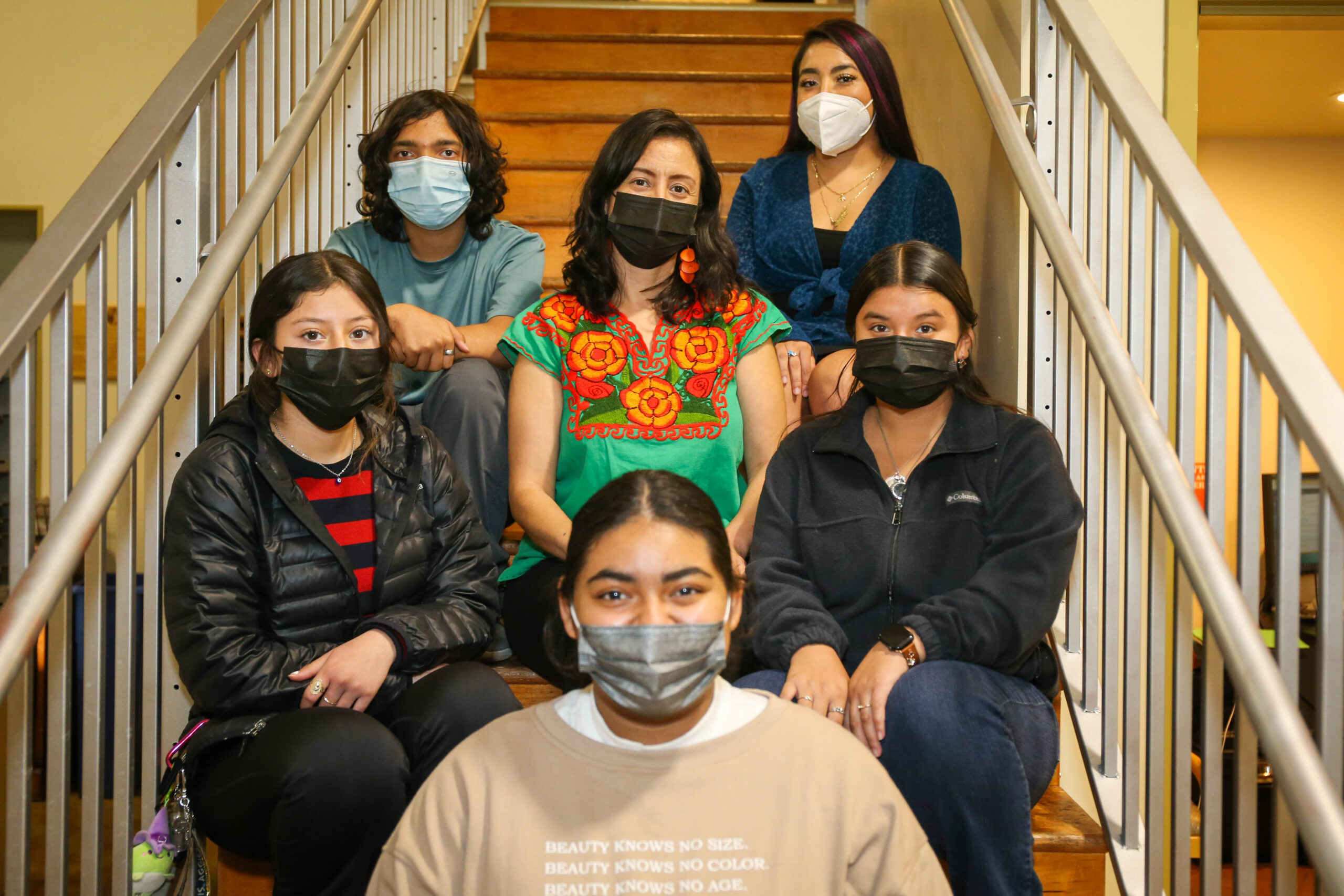The stereotype of a high-school classroom — kids falling asleep at their desks, or stealthily texting their friends, as a disciplinarian teacher drones on about calculus — is a long ways from here.
In fact, the roundtable seminar that ran 20 minutes late on this October afternoon produced scarcely a yawn from the dozen or so teenagers assembled, their eyes locked on the instructor, their heads buzzing with ideas about civil rights, racial justice and social mobility.
The students of Centro Legal de la Raza’s youth law academy, nestled in the Fruitvale neighborhood’s shopping village, are keenly aware of how structural disadvantages — immigration barriers, food deserts, lack of voting access — can make their community feel like a world apart from neighborhoods across town.
“People who are in power only want people to vote who can afford to miss work for a day,” Jasmine Suarez, the daughter of Mexican immigrants and a high-school senior in the program, offers during the peer discussion.
While Spanish-language speakers in her community have little access to election information, lawns in upscale Berkeley neighborhoods are peppered with campaign signs, Suarez noted — prompting a peer to ask, “Wait, that’s a thing?”
Centro Legal de la Raza has been a staple of East Oakland for over five decades, defending the legal rights of immigrants, or tenants facing eviction.
The youth law academy, founded in the 2000s, was built to be a training ground for homegrown attorneys who could grow up to fight for their own community. The program offers intensive individualized academic and career support to low-income youth of color, starting in the sophomore year of high school and continuing mentorship and support through college.
But even the 10th-through-12th graders in the program who won’t pursue law as a career can establish a foundation of knowing their rights and understanding how to organize for them.
Students who find their way to the academy enter a mock-trial program in their first year, before receiving a social justice-oriented education of history in their second, and then, as high-school seniors, preparing and applying for college with mentors on hand.

“When we’re talking about working with young people of color, there’s of course a history of distrust of the police, of the court system,” said Mara Chavez-Diaz, a program director at the youth law academy.
“So to be able to take Oakland youth to a courtroom for the first time, not because they’re in trouble or for a relative who’s committed a crime, but they’re there to defend a case — it’s a really powerful, very empowering experience for our students,” she said.
Centro Legal de la Raza hopes to raise $5,000 through the East Bay Times’ annual Share the Spirit campaign, which highlights organizations that strive to help vulnerable communities like the East Oakland youth making their way through the academy. Funds will be used to support the Youth Law Academy’s expansion of wellness and mental health programming for its students.
Naydelin Sanchez, a 2020 alum of the program, is now set to graduate in three years from Mills College with dreams of an eventual law degree.
“I’m a proud product of East Oakland,” Sanchez said in an interview. “Growing up in my community, undocumented, and seeing what the legal system looks like for the people within it — resources are just not accessible. If you do not have connections, it is very hard for you.”
Sanchez makes it a point to swing by and speak to the teens enrolled in the program, knowing firsthand the uncertainties and stress of coming from an undocumented family.

“When I was in high school, there was no one who came from my background to motivate me,” Sanchez said, breaking down into tears. “I was depressed, not knowing if, even after I went through college, I was going to be able to work.”
Sanchez’s personal slogan, “sin miedo al éxito,” means “without fear of success,” a reminder to herself not to feel like an impostor as she reaches her goals.
Mentors like deputy director Raymundo Jacquez, a Hayward native, can offer students the lived experience of actually obtaining a law degree. It’s a rigorous academic environment, he said, full of peers who came from affluent backgrounds.
To survive, students need to think critically, and Jacquez peppers the after-school program with provocative questions: “If voting isn’t everything, what else do you need to do to make change?” is one he offered.
Siurave Quintanilla, a Fremont High senior who’s keen on the idea of being a lawyer, has worked to keep her head on straight in a distracted time.
Quintanilla has spent most of her childhood shuffling back and forth between the homes of her separated parents. When the pandemic forced education to go remote, she found herself looking forward to the academy’s Zoom sessions, where she befriended fellow ambitious students and shared in their realities.
“Our generation is so open with their feelings,” Quintanilla said, her t-shirt carrying a message of body acceptance. “We’re really OK with talking about social justice and our mental health… especially here in Oakland — everywhere you turn here, you see culture.”
